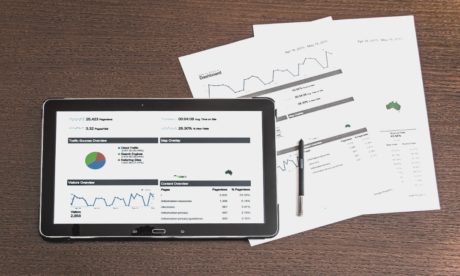When financing a car, who has the title? If you plan to sell your vehicle before you pay off the loan, you might wonder how to obtain this piece of paper.
When financing a car, who has the title? If you plan to sell your vehicle before you pay off payday advance loans Elyria OH the loan, you might wonder how to obtain this piece of paper. Luckily, it’s relatively easy to get the title as long as you have a few specific pieces of information about the vehicle and lender.
Who Has the Vehicle’s Title During Financing?
In real estate, there’s a deed involved. Similarly, a vehicle has a title. This title details the vehicle’s ownership. Depending on your financing type as well as the state you live in, you or your lender may possess the title. It doesn’t matter if you have the physical title though, as you are still allowed to drive the vehicle and sell it if you can pay off the loan.
According to Free Credit Report, the title details the vehicle’s ownership. It describes the identity of the owner and contains information about the vehicle. Titles vary from each state, but the documents usually include the original date of purchase, registration number, and vehicle identification number (VIN). It also mentions if you purchased the vehicle new or used and includes the odometer number at the date of purchase.
- License plate number
- Vehicle’s make, model, and manufacture year
- Name and address of the primary person who drives the vehicle
- Name and contact information of the lender
Many lenders possess the title during the entire length of the car loan. Once you pay off the loan, the lender removes its name from the title. You then receive a copy of the title.
Although this is one way to ensure that you’ve paid off the loan, check your credit report to make sure it shows you’ve paid off the loan in full. Even if you have the certificate of title, you might not own the vehicle outright.
It doesn’t matter who has the paper title because if there’s a lienholder’s information provided on the title, that lienholder can have a right to the vehicle. This lienholder could be a family member, co-buyer, or lender that at one time had ownership rights to the vehicle. To remove this lienholder, he or she needs to sign a document releasing his or her rights and the title or you can go to court to remove that person from the title.
Once you pay off the vehicle and have the title, you might want to pledge it for a loan. Certain states permit car title loans in exchange for a short-term loan. When you get one of these types of loans, you use your vehicle as collateral. If you don’t make the payments, however, the lender can take your vehicle. Beware, because occasionally, these loans have higher interest rates.
It’s important to know how loans work if you want to sell a vehicle you financed or to take out a loan on a newer one. Check your credit report regularly and know the role this credit has in the entire car loan process. Contact your financial advisor or lender if you’re still unsure if you should finance a vehicle.
When purchasing a pre-owned vehicle, according to U.S. News and World Report, you should run a title check (also called a VIN check) to learn more about the vehicle’s history. It also includes dates the vehicle was sold, odometer readings, and if the vehicle was in a flood or accident.
To run a title check, locate the vehicle’s VIN, grab your credit card, and contact a National Motor Vehicle Title Information System (NMVTIS) provider via its website. The NMVTIS is a national consumer protection database that gives title information all across the country.
Choosing the Best Way To Get the Title
According to It Still Runs, the best way to obtain your title is to figure out your proximity to the lender’s office and your state’s Department of Motor Vehicles (DMV) office. Other factors include if you need the title quickly for a potential sale or just want to have the title on file. If the latter is the case, you can wait and receive it in the mail.
Titles and the Electronic Lien and Title System
With the Electronic Lien and Title (ELT) system, it stores and sends title information digitally. This system means state DMV offices and nationwide lenders don’t need to hold and mail vehicle titles.
If your lienholder and state DMV belong to the ELT system, once the lender receives the last loan payment, the DMV receives an electronic release of the lien. From there, the DMV removes the lienholder’s information from the title and sends a hard copy of the title to you.
However, if the lienholder doesn’t maintain electronic titles, it takes longer to receive a paper title. That’s because the paper title must be pulled from storage and signed to release the lien.
Typically, getting a signed title out to you after you make the final payment can take up to 30 days. If you’re pressed for time, take the released title to the DMV after you obtain it so you can do the transfer immediately. If time isn’t an issue, you can mail the paperwork to the DMV. You should receive the modified title back to you in the mail.
When you’re selling a car, the potential buyer typically wants a clean title. This means the lienholder’s name is removed before the sale occurs. To get the title quickly, go to the lender’s office with the buyer to make the final payment and receive a copy of the title. You can close out the loan, remove the title’s lien, receive money for the vehicle, and transfer the vehicle’s ownership.
Processing Delays
After you make the last payment, you might experience a small delay in the processing. The lienholder wants to make sure the check clears before sending out paperwork. Once the lienholder receives the all-clear regarding the last payment and all repayments are complete, the lender informs the DMV that you paid off the loan that the last payment is clear, and all obligations for the repayment have been completed, the lender notifies the DMV that you have paid off the loan.
When you’re financing a vehicle, it’s important to know who has possession of the title. That way, if you plan to sell the vehicle, you know the steps you must take to secure this important piece of paper.








0 responses on "When Financing a Car, Who Has the Title?"